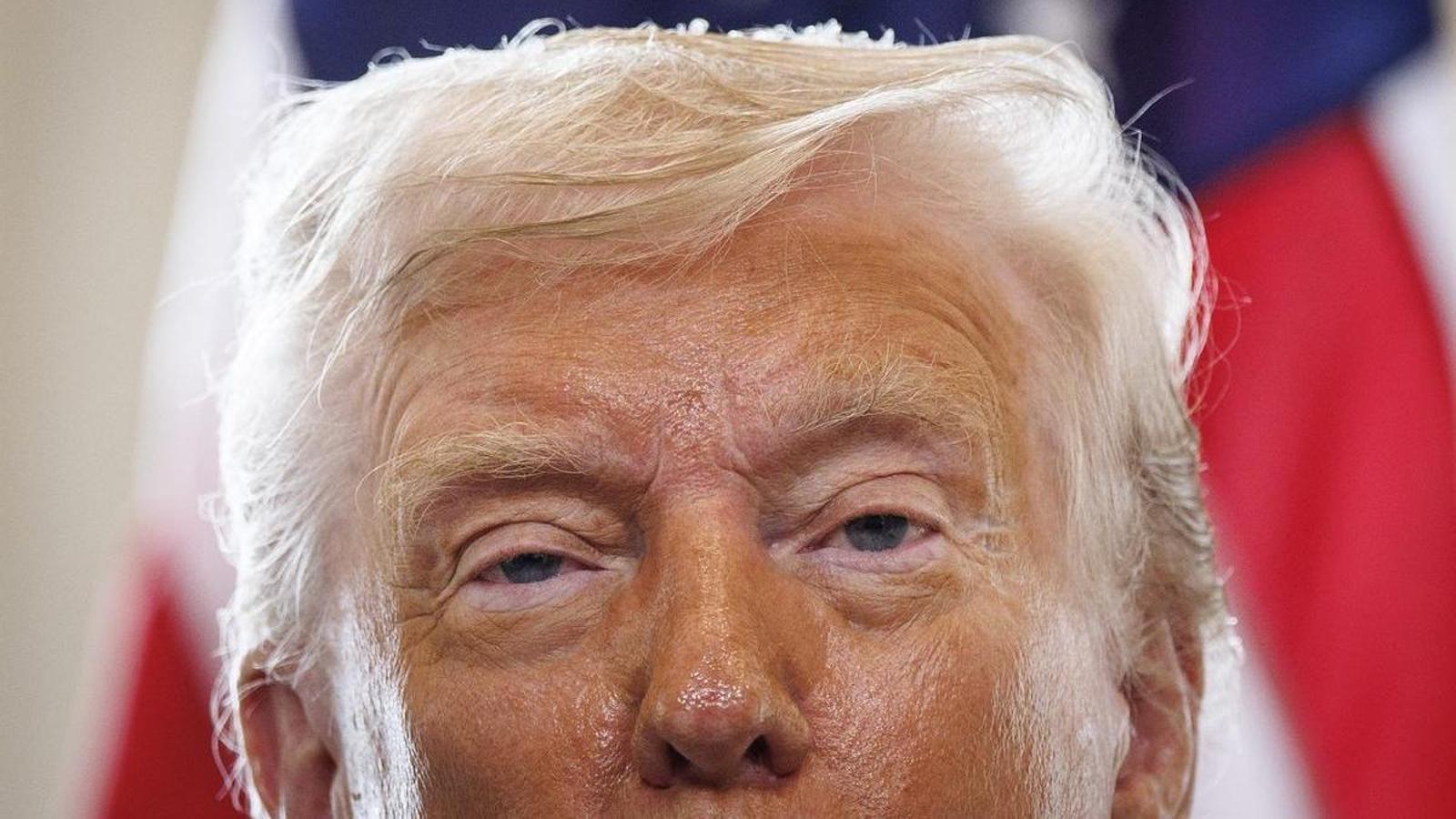

These days mark six months since the start of Trump's second term as president. YankeeIt's only an eighth of the total, but the feeling is one of infinite agony. Trump's media and virtual hyperexposure exhausts us because it has already invaded us, it's already part of our daily lives. These aren't new techniques, but they are the most powerful for articulating fascism in the digital age, because they are wielded from the great digital laboratory that is the Trump administration. Monopolization of media and networks; excessive charisma of the leader; massive control and harassment of dissidents; denigration of political rivals; and, above all, a prevalence of the staging of action over reflection and debate. These aren't empty words, but the sum of the exercises of micropower that many of us experience and continue to experience every day.
Last Friday, in a quiet art center in the Empordà region, I was talking with a renowned New York art curator about the situation in her country. She reveals a deep unease. She doesn't want to return, she tells me from Madrid, where she has lived for 15 years to ensure that her son doesn't have to study in a country where you choose between an excellent and very expensive education, or a mediocre and in some states indecent one. She tells me that some friends of hers, who were going to visit her in Spain this summer, will not make the trip in the end for fear that the father of the family – of Latin origin – will not be able to return to the home where he raised and educated his children. Note: the father has the Green Card (work permit) for years.
Nothing new. merit for not letting him in could be the book which we co-wrote and edited, with interviews with thinkers, academics, jurists and other relevant figures on a phenomenon that is now global, which six years ago we only conjectured as a "symptom."
The day before yesterday, I met again with an admired Catalan professor in the United States. He returned to Barcelona for good months after agreeing to early retirement. He has no plans to return to the country that gave him work and a full life for almost thirty years, not even to repair the damage to the house that a tornado hit months ago. Months after a message from me, a former colleague from Ohio State University, where I taught from 2017 to 2020, writes to me. It's a brief message, oozing sadness and fatigue. It gives me the impression that things are changing, a lot, at the university. Harvard has grabbed headlines in the fight against the Trump administration, but more than 50 universities are publicly targeted, and the Big Ten—the ten public universities in the center of the country, including Ohio State—are key to reconquering the discourse about the nation. It's no coincidence that JD Vance was a student.
This ongoing enmity is a response, according to former Yale University professor Jason Stanley, to the fascist Decalogue: closing borders and prohibiting internal dissent. Like the great theorist of liberty and democracy Timothy Snyder, Stanley now teaches at the University of Toronto. They have packed their bags from their own country to the sister country to the north, tired of seeing with their own eyes what they have theorized about authoritarianism and fascism throughout long academic careers. Author of the classics How propaganda works (2015) and How fascism works (2018), Stanley published Erasing history: How fascists rewrite the past to control the future (Footnote Press, 2024) as Donald Trump gained his second pre-fascist presidency with a pre-fascist agenda and methods. In the book, he concisely describes the "fascist method": 1) create a nationalist project; 2) make the government an autocratic regime; 3) colonize the mind by denying education; 4) rewrite history; and finally, 5) move from the supremacist to the fascist phase.
The teachers are leaving because all indications are that the penultimate phase has already been reached. The days ofAmerican exceptionalism have been exhausted.
Born out of a revolution, the United States has always considered itself a country of citizens united by common values: individualism, anti-statism, and egalitarianism. This ideology—observes Seymour Lipset in American exceptionalism, a double-edged sword (Fondo de Cultura Económica, in English in WW Norton, 1996) – has defined its society and, above all, has determined the limits of political debate. In the past, everything could be discussed except liberty, the veto on autocracy, and the superiority of the people over any political leader. This is how Abraham Lincoln would recall it in his brief but famous Gettysburg Address, Pennsylvania, in 1863: "America is a nation conceived in liberty and dedicated to the assumption that all men are created equal" and with the mission of being "a government of the people, by the people, for the people." Nothing could be further from the truth today.
I look at the publication date of this book, which bothered so many Americans: 1996. It is symptomatic that Lipset wrote it when the country was already experiencing a very strong first wave of right-wing movements and an unprecedented moral crisis caused by the fear of losing economic hegemony to the then-trump party. Substitute Asian countries and the music of today's moral crisis, and little changes. Along the way, little has been done. The result is a country that in the past everyone wanted to visit, where researchers wanted to study, that produced utopian imaginings of life, now transformed into an unbridled locomotive, a wounded beast that transmits the hatred and arrogance of someone dying. The call is louder than ever, but it does so with blindness. of those who do not see the reality of the present and give in to the mirages that unite a glorious past and unfulfillable promises of the future.

